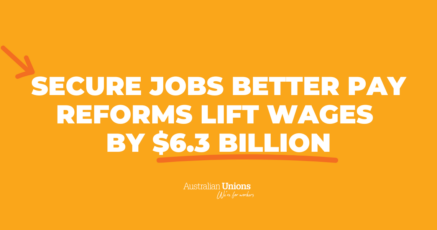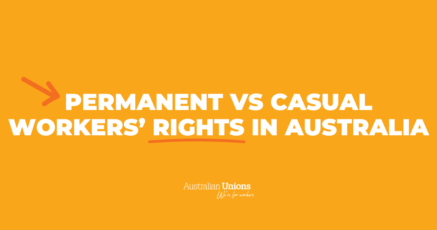Flexibility noun
- A misleading word that promises a work situation to suit the worker but is actually a term used by multi-millionaire CEOs to exploit employees and then cast them aside.
- See also casualisation; sham contracts
For so long, workers have been promised the dream of ‘flexible’ work where you can engage with your job on your own terms while still earning a decent buck. We know better now.
With insecure work on the rise and blurred work/life boundaries becoming the norm, many of us have quickly learned to treat so-called ‘flexibility’ with caution.
But when the pandemic hit and many workers shifted to working from home, a new avenue opened. We had a taste of what flexibility on our own terms could look like.
Who works from home in Australia?
As far as we can see, Work From Home (WFH) appears to be more of an East Coast phenomenon. But the latest statistics come from the ABS 2021 Census when many workers were still under significant COVID restrictions. It is difficult to surmise what the national picture might look like now.
What we do know is that all states and territories, regardless of the COVID restrictions they were under on census night, saw a huge uptick in people working from home compared to the 2016 Census.
And other figures show us that WFH arrangements may be here to say if workers have their way. A Melbourne Institute survey found 88 per cent of workers want to work at least one day from home, including 60 per cent who want a hybrid arrangement.
For too long, big business CEOs and senior executives have used ‘flexibility’ as a euphemism for precarious working conditions. It can mean full shifts one week and none the next. It can mean being used as labour hire and paid less than other workers.
But workers have been taking back the power to determine their own ‘flexibility’.
What workers mean when we say flexible
A report from the beginning of 2022 found 43 per cent of workers said the ability to work from home factored more highly when looking for a new job and 62 per cent cited flexibility.
These employees stated they wanted flexibility and security. They realised that these two things did not have to be in opposition. And if you’re a union member, you already know what it looks like for the two to exist together.
Flexibility noun
- A healthy work/life balance where workers can work reliable hours on a decent wage without having to sacrifice important non-work commitments.
- See also quiet quitting; the right to disconnect
Want real flexibility?
None of us dream of exploitation, burn-out or poor work life balance. We want fairness. We want to be proud of our work but also have time for friends and family. We want a living wage.
That is why we unionise. We know workers are more than something to be bought and sold. We are people first.
It’s why union members stand together for better workplace conditions and protected workers’ rights. Always.
Cover photo credit: Chris Montgomery on Unsplash






SHARE:
Working From Home arrangements a chance for workers to re-imagine ‘flexibility’